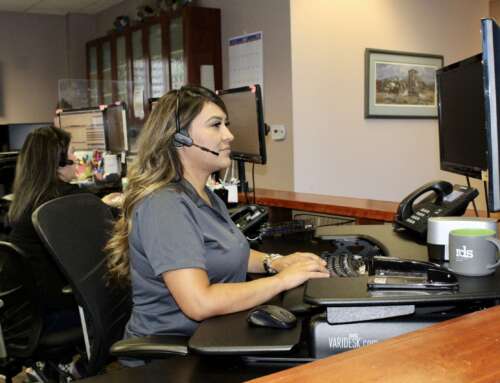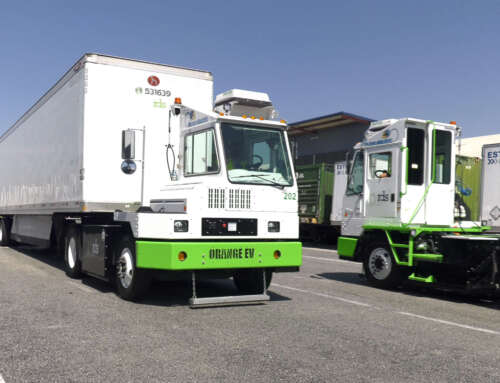Need to ship less than a whole truckload of goods? Consider Small Haul trucking. LTL freight shipping means less than truckload freight shipping. LTL is when your freight doesn’t take up all of the space in the trailer. Shipping in this way can save you money because you are only paying for what you use. Keep in mind; you have to stay under the 15,000-pound weight limit for LTL freight shipping.
Let’s break down in detail what is LTL shipping and how does LTL shipping work.
What is LTL (Small Haul Trucking) Shipping?
Less-than-truckload, also known as or less-than-load (LTL), is a part of the Small Haul Trucking Division at RDS Logistics Group. LTL (Small Haul Trucking) is a shipping service for relatively small loads or quantities of freight. Less-than-truckload services are offered by many large, national parcel services as well as by specialized logistics providers.
These services can accommodate the shipping needs of countless businesses that need to move smaller batches of goods frequently. Less-than-truckload shippers offer economies of scale so that freight costs of individual shipments are minimized.
LTL is considered to be the opposite of FTL, full truckload, which is a shipment that takes up either most of or the whole truck. When the full truck is not needed, customers can choose the LTL option and save money by only reserving a certain amount of a 48 to 53 foot trailer. The rest of the space is shared with other cargo from different customers of the carrier.
For a company that has freight over 150 pounds and under 15,000 pounds and does not need a full truck, this would be a great service to use. Shipments are typically shipped using wrapped pallets, wood crates, or corrugated containers.
The Basics of Less-Than-Truckload (LTL)
Often, a company will not wait until a wholesaler is running low on product inventory to ship a full truckload of replenished goods. Instead, it will more frequently ship less-than-truckload to mitigate the risk of the potential loss of sales from lack of inventory for its distant customers. The shipping costs of its goods may be incrementally higher, and the delivery time may be longer than for a dedicated full truckload, but the trade-off is more dependable inventory availability.
Firms providing less-than-truckload services can range from specialized services that target a particular audience—say, a business that serves urban markets throughout a certain region—to large, national truck transportation companies that carry a client company’s goods across the country.
The Small Haul Trucking at RDS Logistics Group combines the loads and shipping requirements of several different companies on their trucks—a process called assembly service—making it more cost-effective than hiring an entire truck for one small load. Less-than-truckload shipping requires a high degree of coordination and sophisticated logistics planning for maximum profitability.
How Less-Than-Truckload (LTL) Works
Different variables are involved in deciding the specifics of Small Haul Trucking (LTL shipping). They include factors like the place of origin of the shipment, destination, weight and specialized handling needs. Another important factor is the size of the shipment. As the capacity of trucks varies between 800 cubic feet (16-foot truck) and 1,400 cubic feet (26-foot truck), the truckloads vary too.
The dimensions of the shipment also depend on the rules determined and the limits set by the carriers. Usually, they are between 150 and 15,000 pounds occupying 24 feet space of a truck’s trailer or even less and consisting of six or fewer pallets. LTL shipments get transported flat on stands that are of plastic or wood usually measuring 48”x40”. One finds individual LTL loads are often wrapped together creating a big box that helps optimize space utilization and raises security.
The LTL operates using a hub and spoke model where they share the space on a trailer. The local terminals are the spokes connecting to a network of distribution centers of main hubs. The freight is first loaded at local terminals from where the goods are pickup and then transported to the destination hubs. The goods are then directly delivered to the final destination or at times, transferred to other trucks for an onward journey to the recipient.
Benefits of LTL (Small Haul Trucking)
For companies, Small Haul Trucking at RDS Logistics Group has many advantages beyond delivering freight on time and improving their bottom line.
- Cost-Efficient
Since you are only paying for the portion of the trailer or truck that you use, companies can still get excellent rates if they work through a freight consolidator.
- Easy to Track
LTL shippers tend to use top-of-the-line tracking systems so they and their customers can monitor freight 24/7. Consignments are usually “marked” several times throughout their journey before arriving at their final destination.
- Environmentally Friendly
LTL shipping limits the number of empty miles for carriers as trucks and trailers are packed to maximum capacity, reducing trips and unhealthy fuel emissions. This minimizes carbon footprints and is better for the environment.
- Shipping Small Quantities
Smaller companies do not have to wait for massive production outputs to start doing business. Business begins as soon as they have small quantities to ship to customers.
How Is LTL (Small Haul Trucking) Freight Calculated?
Before your shipment can be picked up and shipped to its destination, your carrier or RDS Small Haul Trucking Division coordinator will send you a quote. The quote you receive will be a total of the different factors below.
- Distance
The longer the distance the higher the price will be.
- Additional Services and Specialties
Sometimes shipments require special trucks, services, or equipment depending on the cargo. For example, if a lift gate, residential pickup or delivery is needed, or your freight is perishable, the rate can fluctuate depending which carrier is used.
- Freight Class
The weight and dimensions of your shipment will primarily be used to determine the freight class. The freight class is essential information as it has a major influence on the overall LTL rate you receive.
What Is The LTL (Small Haul Trucking) Freight Class?
Freight class is a standardized shipping industry pricing classification used to establish uniform parameters for commerce. There are 18 different classes, ranging from 50 to 500.
Freight class helps calculate how much transporting Small Haul Trucking freight will cost. The higher the class, the higher the cost for every hundred pounds shipped. An LTL classification list will take the following into consideration:
- Stow-ability
Most freight is easily transportable over land and sea. However, some cargo is regulated by carrier policies or the government, especially if it weighs more than normal load-bearing capacity or is bulky and difficult to load, secure, and stack. If freight has a low-stability ranking, it means it is a challenging load and carry.
- Density
This is the space the freight occupies in relation to its weight. Density is calculated by dividing the weight of the item in pounds by its volume in cubic feet.
- Handling
Freight that requires special packaging and handling, i.e., goods that need temperature-controlled vans, extra protection due to being hazardous or is awkward to carry, is classified under a higher freight class.
- Liability
This is the probability and risk of freight being damaged, either because it is fragile, perishable, or combustible. Freight with a high liability is assigned a value per round, which is a fraction of the carrier’s liability. When freight is classified according to liability, then density is also measured to determine the price.
The RDS Way
RDS Logistics Group knows that it takes a team to move businesses forward. When you work with RDS, we become a part of your team. We know that success requires us to rally together with our partners, our customers and communities to deliver the truth, transparency and reliability you need from your logistics partner.
We take pride in using courage and strategic vision to help businesses like yours reach their goals. We will always find a path forward, because if there isn’t one, we will make one. That is what people with a pioneering spirit do.
Call us today at (909) 355-4100 to discuss your warehousing and logistics needs. We always go the extra mile. Then even further. For our team, our partners, customers and communities. And we do it with a big smile and a little spunk.
Like we always say, “Let’s rally, together.”
Work With Us
Let’s Rally, Together!
Ready to get started with our logistic transportation services?



